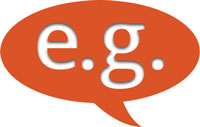SEO Content Marketing: How Answering Questions is the Foundation for Great Content
There is an art to writing great content that is both engaging and beneficial for search engine optimization. SEO content marketing is a delicate craft: You must balance usefulness with engagement. You may feel overwhelmed at the prospect of even beginning a piece of content. Where do you start? You aren’t alone in your dilemma: As SEO specialists, much of our approach includes content marketing. Thankfully, we have a solution when it comes to getting a good start on your SEO content marketing that we’d like to share with you:
Questions are at the Heart of All Content

When you boil down content marketing, it all results in one thing: You are creating content for people. And, these people have questions – they have an intent as they search the internet. Questions are at the heart of all search results (which is why they’re called search queries). Thus, questions need to be at the heart of our keyword research and SEO content marketing strategy. So, before you begin writing your content, you must ask yourself this question:
What is the User’s Intent?
Even if you’ve done your keyword research, the user’s intent needs to be at the forefront of your mind, or you may miss the mark and target the wrong group of searches.
 Here’s an example: When I began writing this post, I considered focusing on keywords related to blogging. After all, this post is about blogging for businesses. I used Google’s keyword planner to grab a few promising keywords, and I prepared to write my post. Then I stopped to think about the user’s intent when they search for blogging tips for SEO. The user I want to target wants to answer the following questions: How to Write for SEO, How to Write Engaging Content for SEO, and SEO in Content Writing. I did a little searching, and discovered that most blogging search queries were related to personal blogs, not blogging for business. Thinking of the user’s intent helped me narrow my focus to include terms related more to businesses, such as “SEO” and “content marketing.” I would have missed the mark and blogged for the wrong user, which could have a negative impact on my SEO in the long run.
Here’s an example: When I began writing this post, I considered focusing on keywords related to blogging. After all, this post is about blogging for businesses. I used Google’s keyword planner to grab a few promising keywords, and I prepared to write my post. Then I stopped to think about the user’s intent when they search for blogging tips for SEO. The user I want to target wants to answer the following questions: How to Write for SEO, How to Write Engaging Content for SEO, and SEO in Content Writing. I did a little searching, and discovered that most blogging search queries were related to personal blogs, not blogging for business. Thinking of the user’s intent helped me narrow my focus to include terms related more to businesses, such as “SEO” and “content marketing.” I would have missed the mark and blogged for the wrong user, which could have a negative impact on my SEO in the long run.
As you can see, failing to consider the user’s intent for SEO content marketing can result in writing for the wrong audience. Alternatively, when you consider your audience’s intent as they search, you’ll be able to write a post that is far more relevant that the narrow keywords you have researched and gathered for your post. According to recent insights into Google’s algorithm, “intent matching” and “keyword co-occurrence,” play big roles in determining which content to rank (this video and article does a great job of explaining these two concepts).
 Here’s an example: Let’s say you are creating content focused around the keywords “best chef knife.” Keep the user’s intent in mind (searchers are most likely looking for a comparison of different chef knives, with information about quality, price, usefulness, etc.). This will help you come up with synonyms and related search topics, which will help you rank and answer your reader’s questions, including questions they may not have known to ask. By thinking of the user intent, you can include other, related information, e.g. sharpening and other care techniques, tutorials, recipes, or other helpful insights. Your content will be much more valuable to your target audience as a result.
Here’s an example: Let’s say you are creating content focused around the keywords “best chef knife.” Keep the user’s intent in mind (searchers are most likely looking for a comparison of different chef knives, with information about quality, price, usefulness, etc.). This will help you come up with synonyms and related search topics, which will help you rank and answer your reader’s questions, including questions they may not have known to ask. By thinking of the user intent, you can include other, related information, e.g. sharpening and other care techniques, tutorials, recipes, or other helpful insights. Your content will be much more valuable to your target audience as a result.
Answer Questions: Improve Relevancy for Your SEO Content Marketing
By looking at the mindset of our user, we’ll also see another benefit: We will be more relevant to our target audience. When you write from the perspective of answering specific search queries and putting yourself in your reader’s shoes, you’ll be able to tailor the content to their level, tone, and interests. For example, you wouldn’t want to write an extremely technical article about all the filters for Instagram, because the user who is looking for information about these filters is likely looking for a simple overview, with examples, vs. technical insights into the filters themselves. Knowing your audience, and focusing on their needs is the best way to increase engagement and thus, boost your ranking.
Answering questions really is at the heart of all SEO content marketing. When you work to create content with user intent in mind, you’ll not only create content that answers their questions, you’ll write content that answers questions they didn’t know to ask. Content marketing for SEO really is an art. You must be technical, but also thoughtful, helpful, but also beneficial for the optimization of your site. We’ll discuss a few of the more technical aspects in the next blog.
